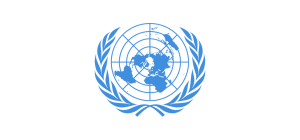Pays
Pays
États-unis
Informations sur UN – United Nations
The United Nations (UN) is an international organization founded on October 24, 1945, after World War II. Its primary purpose is to maintain international peace and security, develop friendly relations among nations, and promote social progress, better living standards, and human rights.
History and Foundation
The UN was created to replace the League of Nations, which had failed to prevent global conflicts. The United Nations Charter, the UN's foundational treaty, was signed in San Francisco by 50 founding countries. Today, the UN has 193 member states.
Objectives and Missions
The main objectives of the UN are:
- Maintaining International Peace and Security: Through conflict prevention, peacekeeping missions, and the peaceful resolution of disputes.
- Promoting Sustainable Development: By encouraging economic and social cooperation and combating poverty.
- Protecting Human Rights: By defending fundamental rights and freedoms and promoting human dignity.
- Providing Humanitarian Aid: By coordinating relief efforts during humanitarian crises and natural disasters.
Structure and Functioning
The UN consists of several main organs:
- General Assembly: A deliberative body where all member states are represented. It discusses and makes recommendations on various international issues.
- Security Council: Responsible for maintaining peace and security. It has five permanent members (China, France, Russia, the United Kingdom, and the United States) and ten non-permanent members.
- Secretariat: Led by the Secretary-General, currently António Guterres, it performs administrative and operational functions of the UN.
- Economic and Social Council: Coordinates the economic and social work of UN agencies.
- International Court of Justice: Settles legal disputes between states.
- Trusteeship Council: (Currently inactive) Supervised the administration of trust territories.
Specialized Agencies
The UN includes several specialized agencies, each with specific roles:
- UNESCO (United Nations Educational, Scientific and Cultural Organization)
- WHO (World Health Organization)
- FAO (Food and Agriculture Organization of the United Nations)
- UNICEF (United Nations International Children's Emergency Fund)
Achievements and Challenges
The UN has played a key role in many successes, such as poverty reduction, disease control, and peace promotion. However, it faces significant challenges, including prolonged conflicts, humanitarian crises, climate change, and geopolitical tensions.
Conclusion
The UN remains a crucial player on the international stage, striving for a more peaceful, equitable, and sustainable world. Its efforts, though sometimes criticized, are fundamental to global progress and cooperation.
Bourses proposées par UN – United Nations
Earth Journalism Network (EJN) offers a fully funded fellowship in Columbia for the UN Biodiversity Conference for journalists worldwide.The Convention on Biological Diversity (CBD...
Autres organismes qui pourraient vous intéresser
Hector Fellow Academy
The Academy was founded in 2013. Today, this network consists of 24 professors and 19 young scientists working in the areas of natural and engineering sciences. New research topics...
Nottingham Trent University
The university was formed by the amalgamation of many separate institutions of higher education. It originated from the Nottingham Government School of Design founded in 1843. In...
University of Brighton
In 1858 the Brighton School of Art opened its doors to its first 110 students, in rooms by the kitchens of the Royal Pavilion. It moved in 1876 to its own building in Grand Para...








